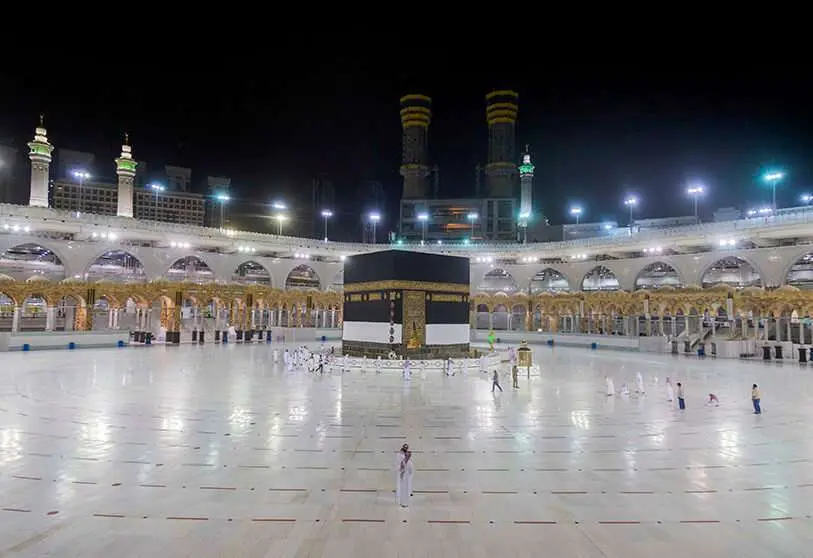Mecca reopens from October

Every quarantine comes to an end and in October it is the turn of the sacred city of Mecca. The Saudi Arabian authorities will allow the Umrah (pilgrimage) to take place in stages and have presented a programme in four phases starting on 4 October.
The pilgrimage has been suspended since the end of February as part of the measures to prevent the spread of the coronavirus. The idea is to resume the visits little by little. At first the initial influx of the faithful will be 30% and, little by little, it will rise to 100% as the pandemic progresses.
Some 13 million people visit Mecca each year and, depending on the date of the pilgrimage, this event is called Umrah or Hajj. The Hajj is the most sacred pilgrimage and takes place from the beginning of Ramadan to the Feast of the Lamb. It is always celebrated during Dhu al-Hijjah (the twelfth month in the Muslim calendar) which in 2021 falls in July.
There are nine months left until the Hajj, and the authorities are unable to predict where we will be at that point in the pandemic. Comments and publications on COVID-19 vaccines will be the solution for many Muslims who wish to make this journey.
Muslims, according to the Koran, must visit Mecca at least once in their lifetime "provided they have the necessary financial means and health conditions", reads the holy text.
The Saudi Press Agency (SPA) reported that the Ministry of Interior will gradually resume the pilgrimage. First, residents of the Saudi kingdom will be allowed to enter the Great Mosque at up to 30 per cent of the capacity, which is estimated to be around 6,000 pilgrims.
In the second phase, which will begin on 18 October, the entrance will be increased to 75 per cent of capacity, some 15,000 pilgrims. And in the third phase, from 1st November, it will be increased to 100%. Only in the third phase will the visit be extended to the faithful coming from outside Saudi Arabia.
These visits will be predetermined by the Ministry of Health, which will decide which countries can enter Saudi Arabia according to the coronavirus regulations. "At this stage, the arrival of pilgrims and visitors from outside the Kingdom will be gradual depending on whether there are health risks related to the pandemic," Ministry sources say.

Finally, the fourth stage involves opening the full capacity of the Great Mosque in Mecca and the Prophet's Mosque in Medina, once the authorities decide that there is no health risk. These deadlines will be subject to continuous review depending on the progress of the pandemic.
To begin with, it has already been announced that "distance and hygiene measures" will have to be maintained in the holy places, a very big challenge since the influx is always massive.
As further procedural changes caused by the coronavirus, pilgrims who want to do the Umrah will have to request it beforehand through an internet application.
The Saudi authorities suspended the Umrah on 27 February when the pandemic began to strike the Muslim countries. However, the Hajj (great pilgrimage) was held last July with a limited number of people.
About a thousand Saudi Arabian worshippers, who were given prior permission to make the journey, visited the holy sites taking into account all the security measures.
According to the World Health Organisation, Saudi Arabia has been hardest hit by the coronavirus pandemic with over 330,000 cases and 4,500 deaths, though the number of positive cases has been on a downward trend since the end of July.







